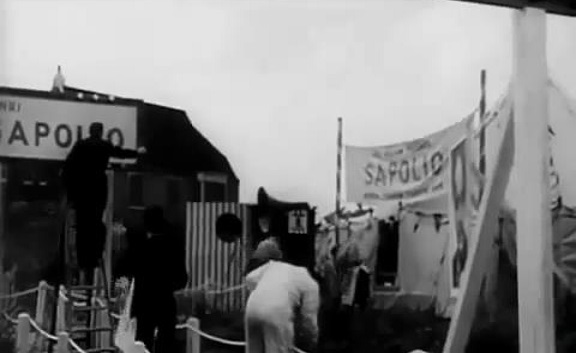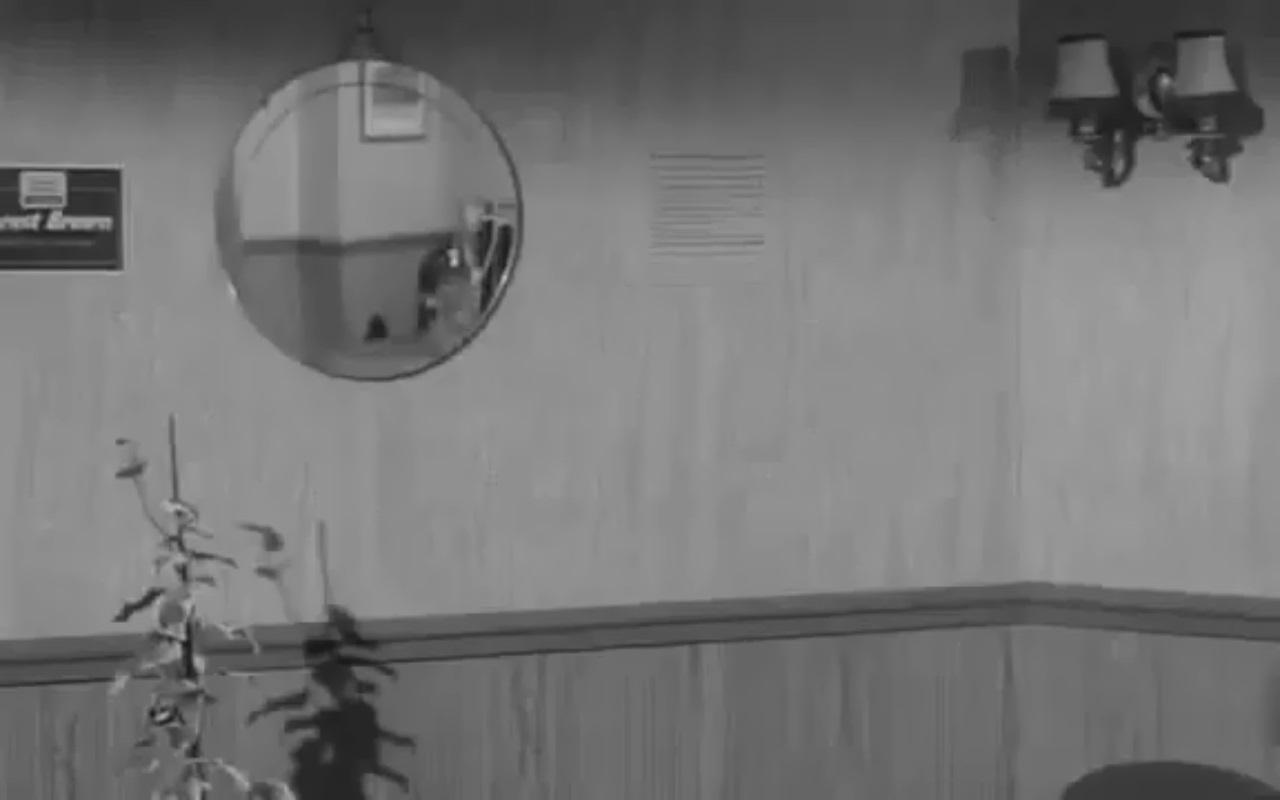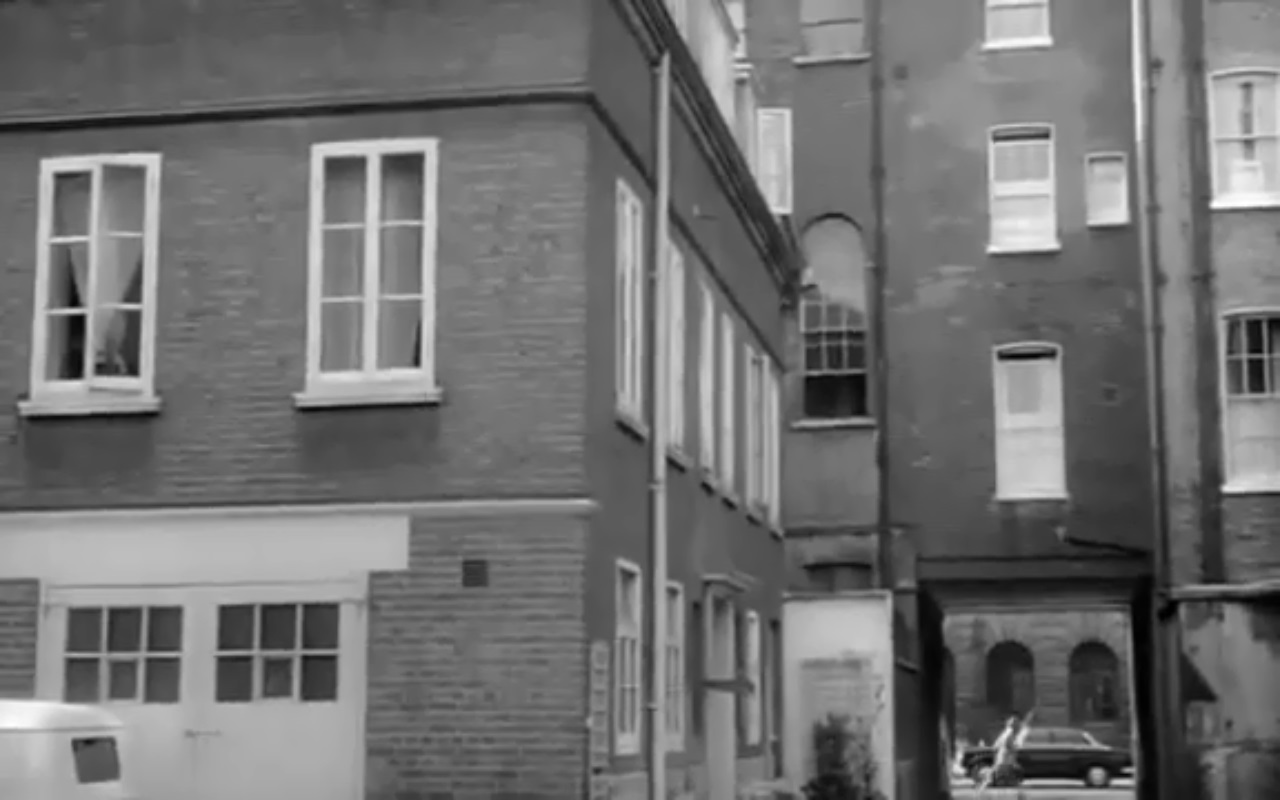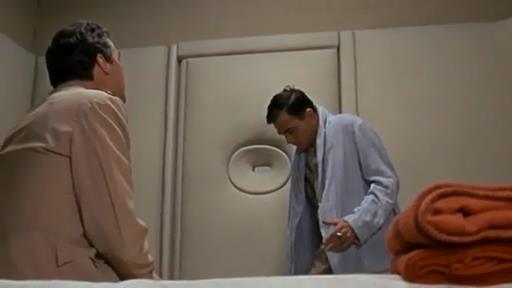Boys in Brown
Serving time at a
borstal institution after various infractions that do not merit prison, a last
chance to reform themselves.
Weakness is the
prevailing character trait, they are easily led astray and highly credulous in their
ignorance, at the root of which is cowardice in the face of life.
These points are
made evident in the boys, a shiftless mob of scapegraces weak as argumentative
critics at a rather tentative festival, and so oddly lacking in that criminal
allure critics see themselves as possessing that critics have not by and large
taken a liking to the accuracy and honesty of the portrait drawn here, not even
English critics young or old (“boring and unpersuasive non-documentary
fiction”, says Halliwell’s Film Guide, “in
Britain’s most tiresome style”).
The Glass Tomb

“Murder,
murder, murder!”
“A sad
business, but it’s a living.”
A hunger artist
on the rubble of London. Thereby depend many
considerations.
The Glass Cage in UK.
Leonard Maltin, “bizarre carnival backgrounds”. Britmovie, “fragmented B-thriller.”
The Man Who Was Nobody

He buys a perfect
diamond with a rubber cheque and absconds. A policeman finds him dead beside the
Thames.
Simply a matter
of a floating roulette game run by a fence.
Neither of these
two is the title character.
An Edgar Wallace
Mystery.

Battle Beneath the Earth

The Pacific War.
The point of
departure is identical to that of Quatermass
and the Pit (dir. Roy Ward Baker) in the European Theater.
The cocktail bar
of Invasion USA (dir. Alfred E.
Green). “I know, Pasadena, but this is an
emergency!”
|
Red is green, and green is red; |
The problem is
defined as meeting the enemy on his own terms, then not being a prisoner of
those terms (cf. Yates’ Murphy’s War).
“Within 48
hours, your country will be a desolate wilderness.”
For the English
these events transpired on the other side of the globe, hence the metaphor of
the title. For the Cold War as a continuation of the Second World War, cf. Dmytryk’s Soldier of Fortune.
Harry Gilroy of
the New York Times, “without the blessing
of Peking, this general has a scheme involving a laser rock borer that
threatens to undermine, literally, America. One hears
strange sounds beneath the streets after viewing this thriller. Let’s
hope the sounds are only from the subway.”
Variety, “Montgomery Tully’s
direction maintains an appropriately fast pace.” Film4, “this might get away
with being an entertaining piece of trash were it not for the fact that it
seems born out of genuine right-wing paranoia, a little red menace fantasy piece
that goes awry. It is not funny enough to be taken ironically, or committed
enough to make any kind of statement.”
Time Out, “a hilarious example of
Reds-under-the-bed literalism... sadly, the film itself is neither as naive nor
as adventurous as its premise.” TV Guide, “this red scare
film”. Dan Pavlides (All Movie Guide), “gets by on its ‘camp’ appeal.” Paul Brenner (Rovi),
“rabid
anti-communist science fiction tract.”